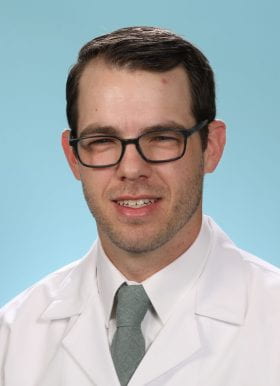The Pediatric Urology Fellowship at Washington University, St. Louis Children’s Hospital is an ACGME accredited two-year position, exposing the fellow to a full spectrum of clinical pediatric urology and research. Graduates from our fellowship program are eligible for the Pediatric Urology Subspecialty Certification (American Board of Urology).
Prerequisites/Eligibility Requirements
Our fellowship program participates in the Pediatric Urology Fellowship Match with The Societies for Pediatric Urology.
- Admission is contingent upon completed of an ACGME- or RCPSC-accredited urology residency program.
- Applicants must be eligible for medical licensure in the state of Missouri prior to starting fellowship.
- Applicants should have completed all 3 steps of USMLE.
- Applicants must register for the match with The Societies for Pediatric Urology.
Application Materials
- The Societies for Pediatric Urology:
Universal Application - Curriculum Vitae
- Three (3) letters of recommendation
Contact Information
Doug Coplen, MD – Fellowship Program Director
Email: coplend@wustl.edu
Gina Yu – Fellowship Program Coordinator
Email: yu.g@wustl.edu
Hubert Swana, MD – Chief of Pediatric Urology
Email: swana@wustl.edu
Interviews
Interviews are held virtually in the spring. We make every attempt to be very flexible with our interviews in order to accommodate applicants’ busy schedules. Once we receive a complete application, applicants are contacted to arrange for interviews.
Faculty
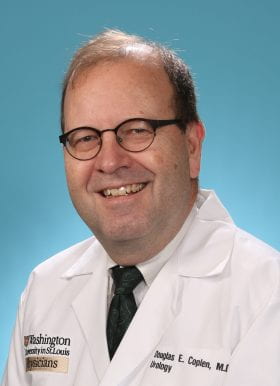
Douglas E Coplen, MD
Professor of Surgery
Pediatric Urology Fellowship Program Director
- Phone: 314-454-6034
Division of Urology Surgery
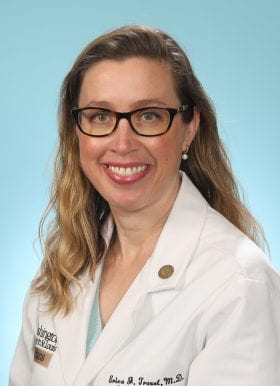
Erica J. Traxel, MD
Associate Professor of Surgery
- Phone: 314-454-6034
Division of Urologic Surgery
Member, WashU Medicine Academy of Educators.

Hubert Swana, MD
Professor of Surgery
Director of Pediatric Urology, St. Louis Children’s Hospital
- Phone: 314-362-8200
Division of Urologic Surgery
Supporting Faculty
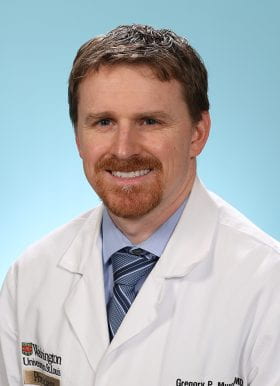
Gregory P Murphy, MD
Associate Professor of Surgery
Director of Urologic Trauma and Reconstruction Fellowship
Nurse Practitioners
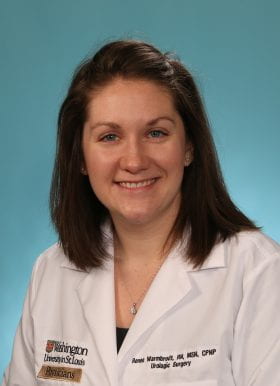
Renee Warmbrodt, RN, MSN, CPNP
Nurse Practitioner
RN, CPNP
BSN, Indiana State University
MSN, St. Louis University

Christina Stephan Stark, RN, MSN, CPNP
Nurse Practitioner
RN, MSN, CPNP, University of Missouri—St. Louis
Goals and Objectives for Training
The goal of the fellowship is to obtain the clinical skills necessary for the competent and independent practice of pediatric urology. The program trains urologists to evaluate, understand, and manage the medical and surgical aspects of pediatric urologic surgery. Graduates will be able to sit for the subspecialty examination in pediatric urology that is administered by the American Board of Urology.
The ACGME core competencies are integrated into the curriculum. The fellow develops surgical and patient care skills under the supervision of the faculty. The environment fosters progressive responsibility/autonomy in patient management. Fellows are taught to assess and improve their own clinical care and surgical abilities. By example, they learn to assess and include new management approaches/scientific knowledge into their practice. During the research, they will learn the importance of contribution to the advancement of the fund of knowledge of the profession. They will demonstrate the relational and communication skills necessary to interact with infants/children/adolescents, parents, nursing staff, ancillary staff and colleagues. The fellowship promotes professional ideals and adherence to ethical principles.
Clinical Responsibilities
Fellows spend their first year leading the clinical service at St. Louis Children’s Hospital. The team consists of the first-year fellow, a senior resident (PGY-4), and junior resident (PGY-2). Residents rotate every three months. Our large volume provides comprehensive training in the hospital, operating room and outpatient clinics. The clinical rotation involves all aspects of pediatric urology including outpatient clinics, complex inpatient and ambulatory surgery, urodynamics, spina bifida, stone disease, transitional urology, differences in sexual differences, fetal diagnosis and treatment, transplantation reconstruction, and pediatric oncology. We serve a diverse patient population and the clinical experience encompasses the entirety of pediatric urologic pathology. All faculty are involved in the training. During the research year (second year of fellowship), the fellow will spend one day per week in clinical care. In preparation for independent clinical practice, the fellow has a supervised clinic where they can hone clinical skills required to evaluate and manage pediatric urology patients.
Research
The objectives of the research year are development of a research question, design and completion the scholarly project with subsequent presentation of the results in a scientific manner (peer reviewed publication and presentation at a national meeting). The fellow will conduct a scholarly project in pediatric urology that is hypothesis-driven, basic translational, clinical, or quality improvement research. Washington University Urology has a research coordinator, a statistician, a data extractor and clinical research databases to support the fellow’s research. Clinical research is ongoing in the department, and projects are tailored to the interest of the individual fellow. Early in the first clinical year, a plan for clinical research is established based on fellow’s interest. The research project (hypothesis, design, IRB, etc) will begin during the clinical year allowing for initiation during the clinical year and maximal productivity once the research year (2nd year of fellowship) begins. The second-year fellow will also be responsible for completion of a quality improvement project to completing the Inquiry program and fulfilling the ACGME requirement.
Current research projects include:
- Prospective evaluation of hypospadias outcomes with development of a nomogram to help in preoperative parental counseling
- Long-term bladder functional outcomes in adults with history of PUV
- Prospective evaluation of outcomes after prenatal closure of spinal dysraphism
- Urologic management of renal manifestations of tuberous sclerosis
- Multi-institutional evaluation of compliance with AUA/AAP cryptorchidism guidelines
- Co-investigators PKIDS multi-institutional PCORI
- Co-investigators NIH PUSH trial
- Multi-institutional evaluation of urologic outcomes in Spina Bifida patients. CDC NSBPR
- Mixed methods research in hypospadias parent and patient experiences
Didactics
Fellows are exposed to a broad range of care and treatment protocols. They attend and participate in many workshops and conferences including:
- Weekly fellow didactic conference
- Pre-operative case conference
- Multidisciplinary didactic conferences
- Fetal care conference
- Differences in sexual differentiation conference
- Oncology conference
- Research conference
- UroRadiology conference
- M&M
- Journal Club
Prior Fellows
| Gino Vricella, MD | Assistant Professor | Washington University, St. Louis Children’s Hospital |
| Joel Koenig, MD | Assistant Professor | University of Missouri-Kansas City School of Medicine, Children’s Mercy Kansas City |
| Kyle Rove, MD | Assistant Professor | University of Colorado Medicine, Children’s Hospital Colorado |
| Bhalaajee Meenakshi Sundaram, MD, FACS | Assistant Professor and Director | Pediatric Robotic Surgery at the University of Oklahoma, Oklahoma Children’s Hospital |
